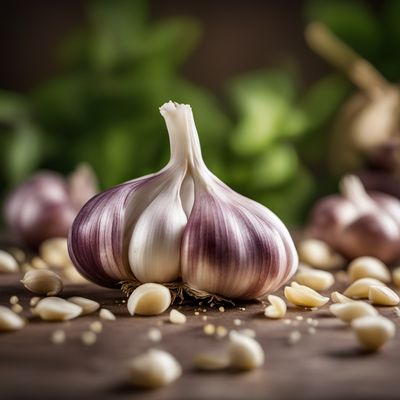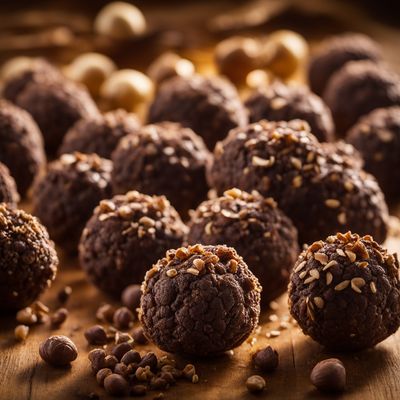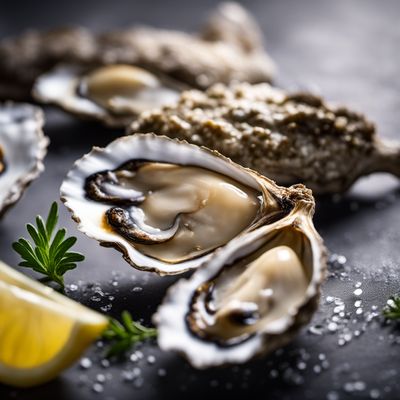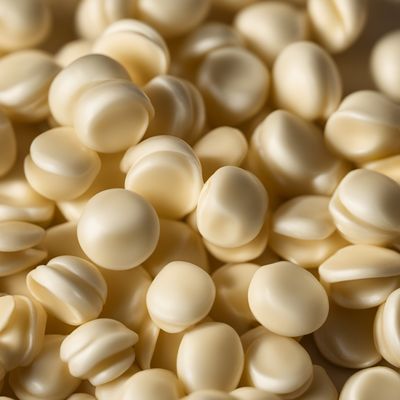
Ingredient
Mango flavour
The Tropical Temptation of Mango Flavour
Mango flavour is a concentrated extract derived from ripe mangoes, capturing the essence of their sweet, juicy flavor. It is commonly used in desserts, beverages, and even savory dishes to add a tropical twist. The flavor of mango is characterized by its vibrant sweetness, with hints of citrus and tropical fruit.
Origins and history
The mango is native to South Asia, with India being its primary place of origin. It has a rich cultural and historical significance in the region, where it has been cultivated for thousands of years. Mangoes were introduced to other parts of the world through trade and exploration, and they are now grown in various tropical and subtropical regions globally. The mango flavor extract is a convenient way to enjoy the taste of mangoes year-round, regardless of their seasonal availability.
Nutritional information
Mango flavour is typically low in calories and fat, making it a guilt-free way to add a burst of tropical sweetness to dishes. It is also a good source of vitamin C and dietary fiber.
Allergens
Mango flavour extract is typically derived from mangoes and does not contain any known allergens. However, it is always important to check the specific product label for any potential allergen information or cross-contamination risks.
How to select
When selecting mango flavour, opt for reputable brands that use natural ingredients and avoid artificial additives. Look for products that clearly state the percentage of mango extract or flavoring used. It is also helpful to read reviews or seek recommendations from trusted sources to ensure the quality and authenticity of the mango flavor extract.
Storage recommendations
To maintain the freshness and quality of mango flavour, store it in a cool, dry place away from direct sunlight. Avoid exposing it to moisture or extreme temperatures, as this can affect its flavor and longevity. It is recommended to use mango flavor extract within its expiration date for the best taste and quality.
How to produce
Mango trees can be grown in tropical and subtropical regions, provided they have access to full sun and well-drained soil. They require regular watering and protection from frost or extreme temperatures. With proper care and maintenance, mango trees can produce an abundant harvest of fresh mangoes.
Preparation tips
Mango flavour can be used in a variety of ways, including adding it to smoothies, ice creams, baked goods, and cocktails. It can also be used as a marinade or glaze for meats and seafood to impart a tropical twist. When using mango flavour, start with a small amount and adjust according to taste, as it can be quite potent. It is also important to note that mango flavour is concentrated, so a little goes a long way.
Culinary uses
Mango flavour is commonly used in desserts such as mango mousse, mango cheesecake, or mango sorbet. It is also a popular addition to tropical cocktails, smoothies, and fruit salads. In savory dishes, mango flavour can be used to enhance the flavor of grilled chicken or shrimp, or as a glaze for roasted vegetables.
Availability
Mango flavour is widely available in countries where mangoes are cultivated, such as India, Mexico, the Philippines, and Thailand. It is also commonly found in international grocery stores or specialty food shops that carry a variety of flavor extracts and ingredients.
More ingredients from this category » Browse all

Garlic flavour
The Aromatic Allium Essence

Marsala flavour
The Enchanting Essence of Marsala

Cucumber flavour
"Cool and Refreshing: Exploring the Delicate Essence of Cucumber Flavor"

Truffle flavour
The Essence of Earthly Delight

Wild strawberry flavour
The Essence of Wild Delight

Anise flavour
Anise: The Licorice-Like Aromatic Herb

Gin flavour
The Essence of Gin

Artichoke flavour
"The Delicate Essence: Exploring the Subtle Flavors of Artichoke"

Oyster flavour
"The Ocean's Umami: Exploring the Delicate and Savory Oyster Flavour"

Berries flavour
"Nature's Burst of Berry Bliss"

Mustard flavour
The Zesty Essence: Mustard Flavour

Vanilla flavour
The Sweet Essence: Unveiling the Magic of Vanilla Flavour